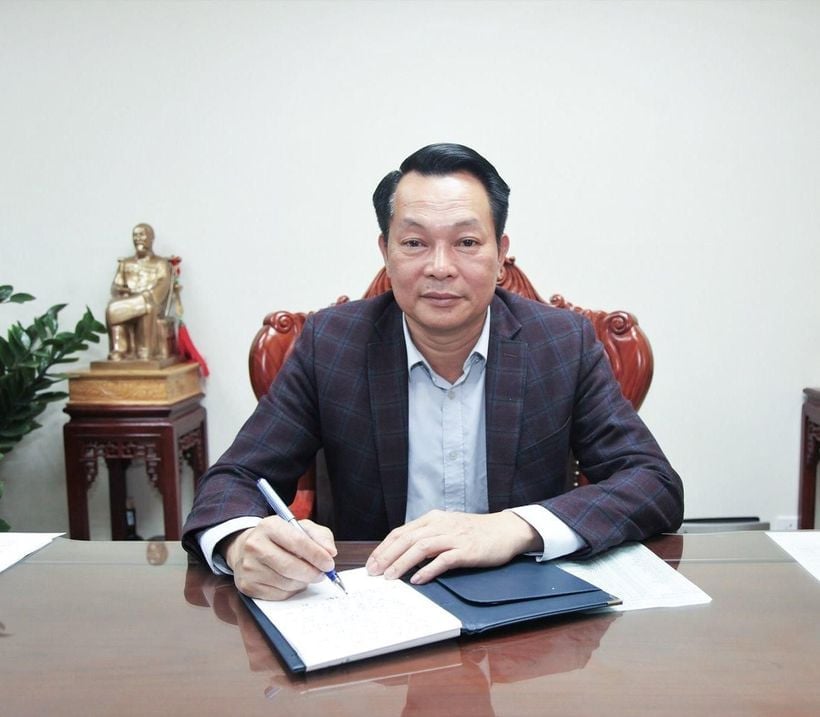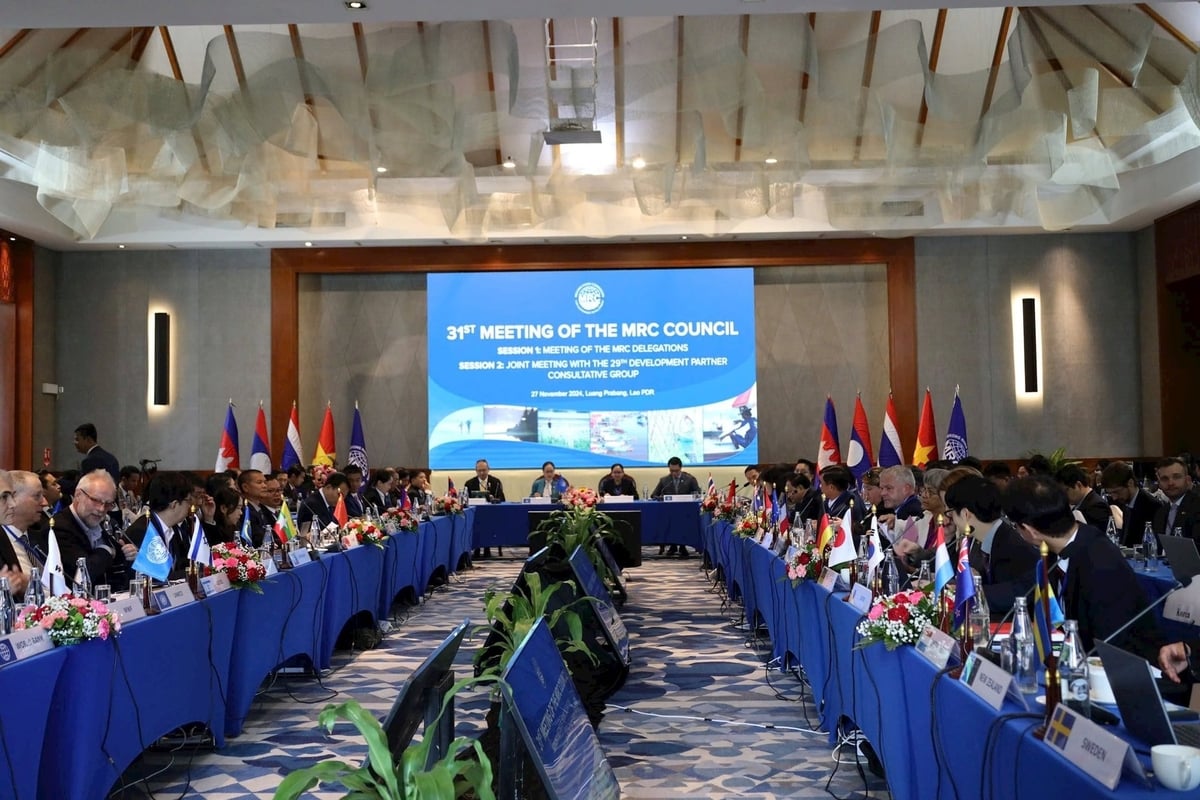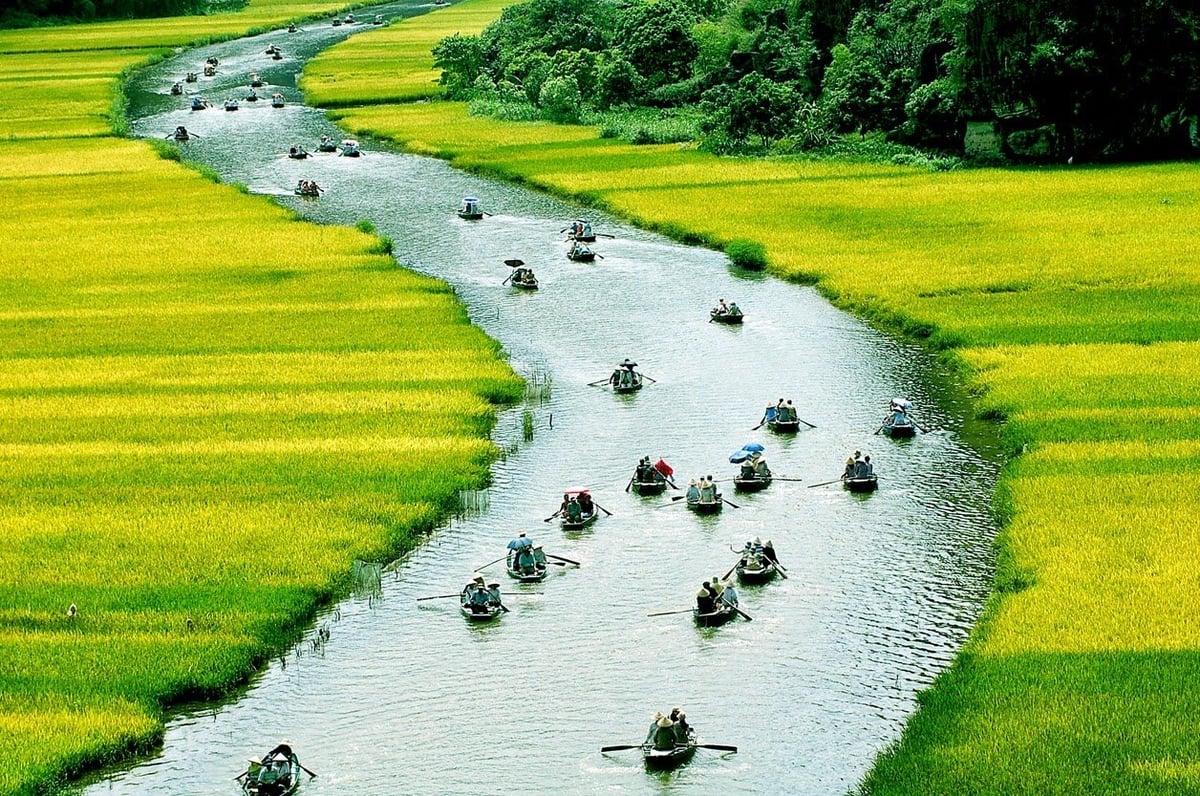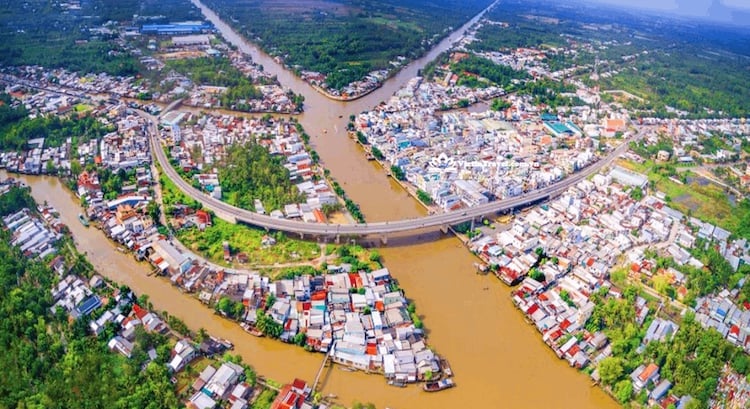May 29, 2025 | 07:01 GMT +7
May 29, 2025 | 07:01 GMT +7
Hotline: 0913.378.918
May 29, 2025 | 07:01 GMT +7
Hotline: 0913.378.918
World Water Day is not only an opportunity to increase public awareness, but also a strong demand for concrete policies and actions to safeguard water resources.
In Vietnam, despite an abundance of rivers and a diverse river system, the overexploitation of water resources and increasing pollution levels have posed serious challenges. Effective water management is no longer a matter of option; it is an urgent necessity in the context of climate change and the increasing demand for water.
On this occasion, Vietnam Agriculture and Nature had a discussion with Dr. Nguyen Minh Khuyen, the Deputy Director of the Department of Water Resources Management under the Ministry of Agriculture and Rural Development, to further look into this issue.

Dr. Nguyen Minh Khuyen, Deputy Director of the Department of Water Resources Management. Photo: Nguyen Thuy.
Reporter: This year’s World Water Day (March 22, 2025) is themed “Glacier Preservation” by the United Nations. What will Vietnam prioritize in the water resources sector in light of this global message and the current conditions?
Dr. Nguyen Minh Khuyen: The 2025 theme underscores the critical function of glaciers, snow, and ice in the Earth's climate system and water cycle. It promotes the exchange of knowledge and the implementation of optimal strategies for the conservation and adaptation of ice.
We have localized the theme to "River Conservation and Restoration" in Vietnam, where water resources are largely reliant on transboundary sources and are facing increasing water security challenges. The objective of this section is to safeguard water resources and promote regional collaboration for sustainable, appropriate water management by addressing degrading, depleted, and polluted water sources.
The Department of Water Resources Management is collaborating with relevant agencies to raise public awareness of the significance of water in economic development, the necessity of sustainable use, and the role of water security in peace and prosperity in order to mark the occasion. Notably, glaciers and ice peaks are responsible for the storage of approximately 70% of the world's freshwater.
The Department has also provided guidance on critical water security policies in accordance with the 2023 Law on Water Resources, with a focus on sustainable and efficient uses. Vietnam continues to implement integrated water resource management principles, which include the coordination of upstream and downstream use, the balancing of surface and groundwater, and the application of these principles by river basin.
Reporter: It is clear that World Water Day 2025 is not only an opportunity to advocate for the preservation of water resources, but also a chance to foster international unity. What international cooperation initiatives has the Department of Water Resources Management implemented to protect rivers?
Dr. Nguyen Minh Khuyen: International cooperation is crucial, particularly in light of the increasing demand for water, pollution, and climate impacts, as approximately 60% of Vietnam's water is sourced from beyond its borders.

Vietnamese delegation attends the 31st Mekong River Commission Council Meeting. Photo: Thu Huong.
In an effort to share and manage water resources, Vietnam has collaborated with the Mekong countries under the 1995 Agreement. In 2014, we became a member of the UN Watercourses Convention, where we pledged to ensure the equitable and sustainable utilization of shared waters for non-navigational purposes.
Additionally, we are evaluating Vietnam's engagement in the 1992 Helsinki Convention (UNECE Water Convention), which advocates for the collaborative management and safeguarding of transboundary water sources.
The Department has met its international cooperation mandate by collaborating with development partners, expanding relationships with countries that have experience in water governance, and adhering to critical national directives. We have participated in regional discussions and policy development in our capacity as the water resources director for ASEAN in Vietnam.
The objective of these endeavors is to promote sustainable management of shared water resources, technical exchange, and digital water governance.
Reporter: The Minister of Agriculture and Environment has recently underscored the necessity of finalizing water resource plans and scenarios, and the Prime Minister has issued directives on river basin planning. What is the significance of this work in the sustainable management of water resources, particularly in the face of increasing climate pressures, and how is it progressing?
The Department has recommended that the Ministry submit ten main water resource plans, including a national water plan, eight interprovincial river basin plans, and one on basic water investigations, in accordance with the 2023 Law on Water Resources. Dr. Nguyen Minh Khuyen confirms this. In 2025, five additional river basin plans are scheduled for filing.

The Ministry of Agriculture and Environment has completed the announcement of 8 Water Resource Scenarios (for the first time) in the river basin. Photo: illustration.
In 2024, eight river basin water scenarios were developed and announced for the first time, including the Red-Thai Binh, Mekong, Dong Nai, and other basins. These instruments are essential for the purpose of balancing water distribution, ensuring the security of water, food, and energy, and assisting provinces in the development of their water use plans.
Sustainable water governance is no longer an option in light of the growing demand for water and the effects of climate change. It is a necessity. Modern instruments, innovative methodologies, and substantial resource commitments are necessary for river basin planning. The protection of water for a secure and prosperous future is contingent upon the integration of sound policy, advanced technology, and community engagement.

Sustainable water resources management according to river basin planning. Photo: illustration.
The function of digital transformation is essential. The Department is utilizing public-private partnerships to develop national databases and decision-support systems in order to pilot digital water governance. This model enables state agencies to rent digital services, thereby enhancing efficiency and reducing public expenditure.
Additionally, we are enhancing the supervision of large reservoirs to ensure that they comply with inter-reservoir procedures in 11 main river basins. We are also developing real-time operational frameworks to protect downstream areas and optimize water use.
Ultimately, integrated river basin planning is not merely a technical solution; it is a long-term strategy for the preservation of the ecosystem, national water security, and sustainable development. Vietnam is on course to manage its water resources more effectively and sustainably through technological innovation, public support, and strong government leadership.
Thank you!
Translated by Linh Linh

(VAN) The mutual export of agrifood products between the European Union (EU) and the United Kingdom (UK) must occur again without certification, border controls or other red tape. This was agreed at the UK-EU summit.
/2025/05/22/5121-2-173645_677.jpg)
(VAN) NBSAP Tracker identifies strengths and areas for improvement in the National Biodiversity Strategy, based on each region’s priorities and capacities.

(VAN) The draft amendment to the Circular on rice export trading stipulates a periodic reporting regime for rice exporting enterprises.

(VAN) Dong Thap farmers attained an average profit margin of 64% during the summer-autumn 2024 crop (first season), while An Giang and Kien Giang farmers followed with 56% and 54%, respectively.

(VAN) As a doctoral student doing research on renewable energy and electrification at Harvard University, the author shares his musings on electricity, nature, and countryside memories.

(VAN) The decree on Extended Producer Responsibility (EPR) ensures transparent management and disbursement of support funds, avoiding the creation of a “give-and-take” mechanism.

(VAN) Hue City rigorously enforces regulations regarding marine fishing and resource exploitation, with a particular emphasis on the monitoring of fishing vessels to prevent illegal, unreported, and unregulated (IUU) fishing.